Filter by
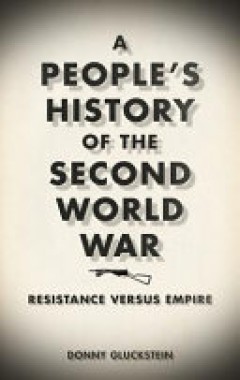
A people's history of the Second World War : resistance versus empire
A People's History of the Second World War unearths the fascinating history of the war as fought 'from below'. Until now, the vast majority of historical accounts have focussed on the conflict between the Allied and Axis powers for imperialist mastery. Donny Gluckstein shows that in fact between 1939 and 1945 two distinct wars were fought – one ‘from above’ and one ‘from below’. Using…
- Edition
- 1
- ISBN/ISSN
- 9780745328034
- Collation
- ix, 262p
- Series Title
- -
- Call Number
- 940.53 DON

The Invasion of The South: Army Air Force Operations, and the Invasion of Nor…
Between 1966 and 1980, the War History Office of the National Defense College of Japan (now the Center for Military History of the National Institute for Defense Studies) published the 102-volume Senshi Sōsho (War History Series). The present book completes the trilogy of English translations of the sections in the Senshi Sōsho series on the Japanese operations against the former Dutch East I…
- Edition
- 34
- ISBN/ISSN
- 9789400604100
- Collation
- 519p
- Series Title
- -
- Call Number
- 940.544952 REM

Writing The Digital History Of Nazi Germany
This book will consider how the outcomes of “doing history digitally” include different kind of sources and data, as well as new ways of researching historical questions, and innovative forms of presenting history. All contributions focus on aspects related to the history of National Socialism, World War II and the Holocaust.
- Edition
- -
- ISBN/ISSN
- 9783110714692
- Collation
- -
- Series Title
- -
- Call Number
- Berlin/Boston
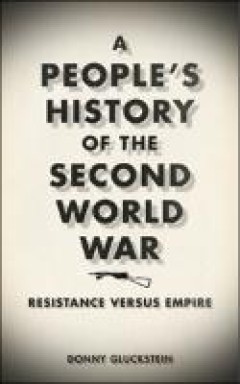
A people's history of the second world war
A People's History of the Second World War unearths the fascinating history of the war as fought 'from below'. Until now, the vast majority of historical accounts have focussed on the conflict between the Allied and Axis powers for imperialist mastery. Donny Gluckstein shows that in fact between 1939 and 1945 two distinct wars were fought – one ‘from above’ and one ‘from below’. Using…
- Edition
- -
- ISBN/ISSN
- 9781849647205
- Collation
- Knowledge Unlatched (KU)
- Series Title
- -
- Call Number
- -
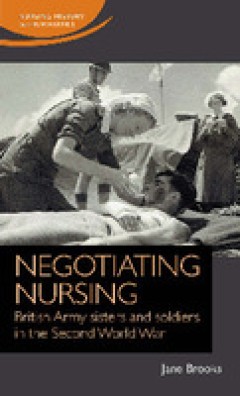
Negotiating Nursing
Negotiating nursing explores how the Queen Alexandra's Imperial Military Nursing Service (Q.A.s) salvaged men within the sensitive gender negotiations of what should and could constitute nursing work and where that work could occur. The book argues that the Q.A.s, an entirely female force during the Second World War, were essential to recovering men physically, emotionally and spiritually …
- Edition
- -
- ISBN/ISSN
- 9781526147257
- Collation
- -
- Series Title
- -
- Call Number
- -
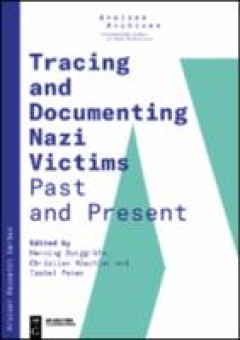
Tracing and documenting Nazi Victims past and present
After World War II, tracing and documenting Nazi victims emerged against the background of millions of missing persons and early compensation proceedings. This was a process in which the Allies, international aid organizations, and survivors themselves took part. New archives, documentation centers and tracing bureaus were founded amid the increasing Cold War divide. They gathered documents on …
- Edition
- -
- ISBN/ISSN
- 9783110665376
- Collation
- VIII, 342 p.
- Series Title
- -
- Call Number
- 025 TRA t
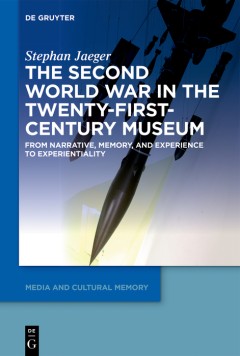
The Second World War in the Twenty-First-Century Museum : from narrative, mem…
The Second World War is omnipresent in contemporary memory debates. As the war fades from living memory, this study is the first to systematically analyze how Second World War museums allow prototypical visitors to comprehend and experience the past. It analyzes twelve permanent exhibitions in Europe and North America – including the Bundeswehr Military History Museum in Dresden, the Museum o…
- Edition
- -
- ISBN/ISSN
- 9783110664416
- Collation
- XIV, 354 p.
- Series Title
- Media and Cultural Memory / Medien und kulturelle Erinnerung, 26
- Call Number
- 943 JAE s
 Computer Science, Information & General Works
Computer Science, Information & General Works  Philosophy & Psychology
Philosophy & Psychology  Religion
Religion  Social Sciences
Social Sciences  Language
Language  Pure Science
Pure Science  Applied Sciences
Applied Sciences  Art & Recreation
Art & Recreation  Literature
Literature  History & Geography
History & Geography